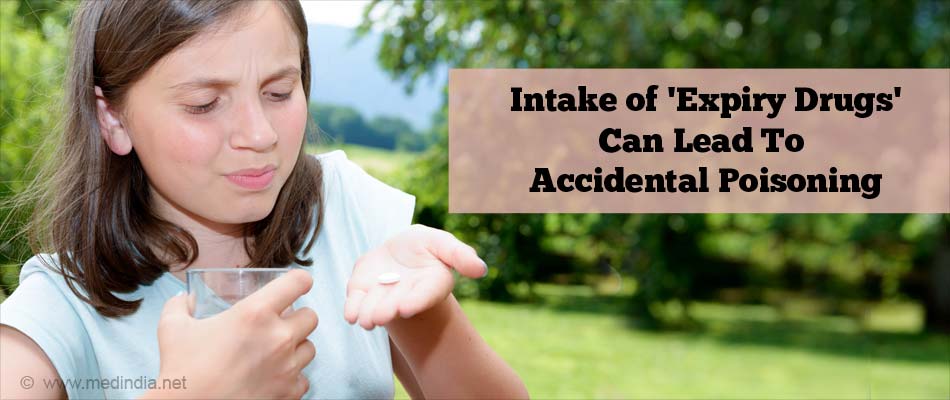- Don’t Be Tempted to Use Expired Medicines - (https://www.fda.gov/drugs/resourcesforyou/specialfeatures/ucm481139.htm)
- Expired Medication - (https://www.aarp.org/health/drugs-supplements/info-2015/expired-medication.html)
- Best Before and Expiry Dates for Food - (https://www.badgut.org/information-centre/health-nutrition/best-before-and-expiry-dates-for-food-and-drugs/)
- Drug Expiration Dates do they Mean Anything - (https://www.health.harvard.edu/staying-healthy/drug-expiration-dates-do-they-mean-anything)
What Is Meant By Expiry Drugs?
A law was passed by FDA (U.S. Food and Drug Administration) in 1979 that drug manufacturers must stamp their products with an expiry date. The expiry date is the date at which the manufacturer can still guarantee that the drug product is still fully potent, pure and safe to consume.
This calculation of shelf life is based on the stability of the product in its original unopened container. Once the contents are exposed to air and moisture, the product may degrade or lose its efficacy.
However, the expiration date does not really indicate a point after which the medication is no longer effective or has become unsafe to use. The effectiveness or potency of a drug may decrease only slightly over a period of time. Hence, the FDA created the ‘Shelf Life Extension Program’. This program is however yet to emerge.
The topic whether expired drugs can be used or not is still under debate. As a precautionary measure, one must not use expired medications as some medications like nitroglycerin, insulin and liquid antibiotics are not as long-lasting as other medications and could be unsafe and life threatening to use.
Similarly, one may think that expired diet pills are safe to use. However, these also can less effective once they reach expiry date. Hence, these should be disposed rather than be used. The same is true of drugs used to treat Irritable Bowel Syndrome.
What Are The Side Effects Of Taking Expired Medicines?
The response to an expired medication varies from person to person and the type of medication. In majority of the cases, it can lead to reduced efficacy of the medication. This delays treatment outcomes and leads to longer sick days with absence from school / work.
If a patient is taking medications for chronic or life-threatening diseases, for example, heart ailments, seizures, chronic obstructive pulmonary disease (COPD), or prostate cancer, it is even more important that an expired medication should not be consumed.
Consuming expired antibiotics may not help in fighting off the infection, as they could have lost a significant percentage of their potency, on expiration. Also, by consuming expired antibiotics, one gets the same infection again, leading to drug-resistant bacterial infection.
Products from expired antibiotics like tetracycline can cause serious kidney damage, when used after their expiry date.
How Long Does It Take For Antibiotics To Expire?
Antibiotics are of different types that could be chemically different. Each class would have different expiry date. In general, the manufacturer allocates an expiry date of 2-3 years from the manufacturing date.
One must never self-medicate with left-over or unused antibiotics, as each infection responds to different antibiotics.
What Happens If You Consume An Expired Medication?
The expired or out-of-date medications intake is potentially risky due to the change in composition or decrease in their potency.
Consumption of these medicines by children, pets and seniors could lead to accidental poisoning.

Examples of some medications which must never be used after their expiration dating are listed below:
- Medications used for angina, for example. nitroglycerin, may lose its potency quickly once the bottle is opened and should never be consumed after the expiry date.
- Insulin, which is used to control sugar in diabetics, loses its potency to a large extent after expiry.
- Other drugs which must not be consumed after expiry include warfarin, contraceptives and thyroid medications.
- Ophthalmic solutions are prone to bacterial growth over a period of time and some antibiotics can lose their potency. Using expired ophthalmic medications could pose danger in the form of bacterial infection of the cornea and the worse complication could be loss of one’s vision.
- Inhaler products must be disposed as soon as they expire, as they lose potency after the expiry date. If used during an acute respiratory attack and the expired inhaler is not effective, the situation could become life-threatening.
How Do You Dispose Old, Used Or Expiry Drugs?
It is very important to properly dispose the unused or expired drugs, to avoid any misuse or environmental pollution.
Medications which are not disposed properly can pollute the water supplies and affect fish and water life.
One must read the label or patient information leaflet to see if any disposal instructions are included or a pharmacist must be consulted for disposal procedure.

If there are no instructions, the medicines can be thrown in household trash, after mixing with dirt or trash.
For medicated patches, the used patch should be folded such that the sticky sides come together and the medicated part is not exposed.
For injection medications, the needle should be re-capped to safeguard against injuries and the barrel must be emptied, before disposal.
Some medicines are specifically recommended to be flushed down a sink, as these could be harmful or fatal to children or pets, if accidentally consumed. Examples of such medications include:
- Fentanyl tablets or lozenges or patches
- Hydromorphone hydrochloride tablets, liquid products
- Buprenorphine tablets
There are take-back programs which are safe ways to dispose most of the expiry or unwanted medications. The DEA (U.S. Drug Enforcement Administration) has authorized collection sites set up in different areas to collect the expired medications, which need to be disposed. This program is especially good for narcotics and controlled substances.
What Are Medication Expiry Date Guidelines?
The shelf life of a product is determined based on the degradation of its medication or loss of its potency.
Regulatory authorities of various countries have laid down guidelines for:
- Determining expiry date / shelf life of medication
- Expiry details depending on formulation type, with respect to when a medication is to be discarded, for example, one month after opening the ophthalmic solution bottle
- Products exempted from expiry date
- When a product is considered unsafe to use and must be discarded
- Proper storage of medication
- Disposal of expired or unused medications
Examples of a few formulation types and their expiry details are listed below:
| Formulation type | Expiry details |
| Tablets and capsules in original blister strips or container with printed expiry date | Manufacturer’s expiry date, as printed on original box or mentioned in patient information leaflet |
| Tablets and capsules stored in dispensing bottles from pharmacy | 6 months from date of dispensing, unless otherwise informed by community pharmacist |
| Oral liquids (in original manufacturer’s packaging or amber bottles) | 6 months from date of opening or follow manufacturer’s guidance. For antibiotics, check with community pharmacist if not clear from label |
| External liquids (for example, lotions, shampoos and bath oils) | 6 months from opening or manufacturer’s recommendation, whichever is shorter |
| Sterile eye/ear/nose drops/ointments | 28 days from date of opening |
| Inhalers | Manufacturer’s expiry date |
| Insulin |
|
What Precautions Must Be Taken When Storing and Consuming Drugs?
- It is important to store the drugs properly and as suggested in the leaflet or on the label. Some need to be stored in the refrigerator, as they lose efficacy when exposed to higher temperatures.
- If drugs are being stored in the kitchen area, one must ensure that the cabinet is positioned away from the hot appliances and the sink, to avoid changes in temperature and humidity.
- Children must NOT have access to the medications as it could lead to accidental poisoning or to misuse / abuse. Children safety caps on bottles is one precaution that ensures that the children are not able to open them.
- If a medication has expired, the pharmacist may be consulted for understanding the effectiveness or safety of an expired medication.
- When using long-term medications, these should be purchased in small quantities, for example, for three-month supply rather than one-year supply.
- One must be careful when buying medicines from an online pharmacy, as online prescription medications maybe sold even after expiry.
- Time lapsed from initial date of manufacturing must be noted when buying
- Certain factors must be evaluated, if at all, an expired medication has to be used:
- Pharmaceutical dosage form- liquids are generally more unstable than tablets and capsules
- Appearance of medication – if the product has lost its color or emits a foul odor or if liquid products show precipitation, one must no use the medications
- Storage condition – drugs retain their potency for long, if kept unopened and under cool conditions







